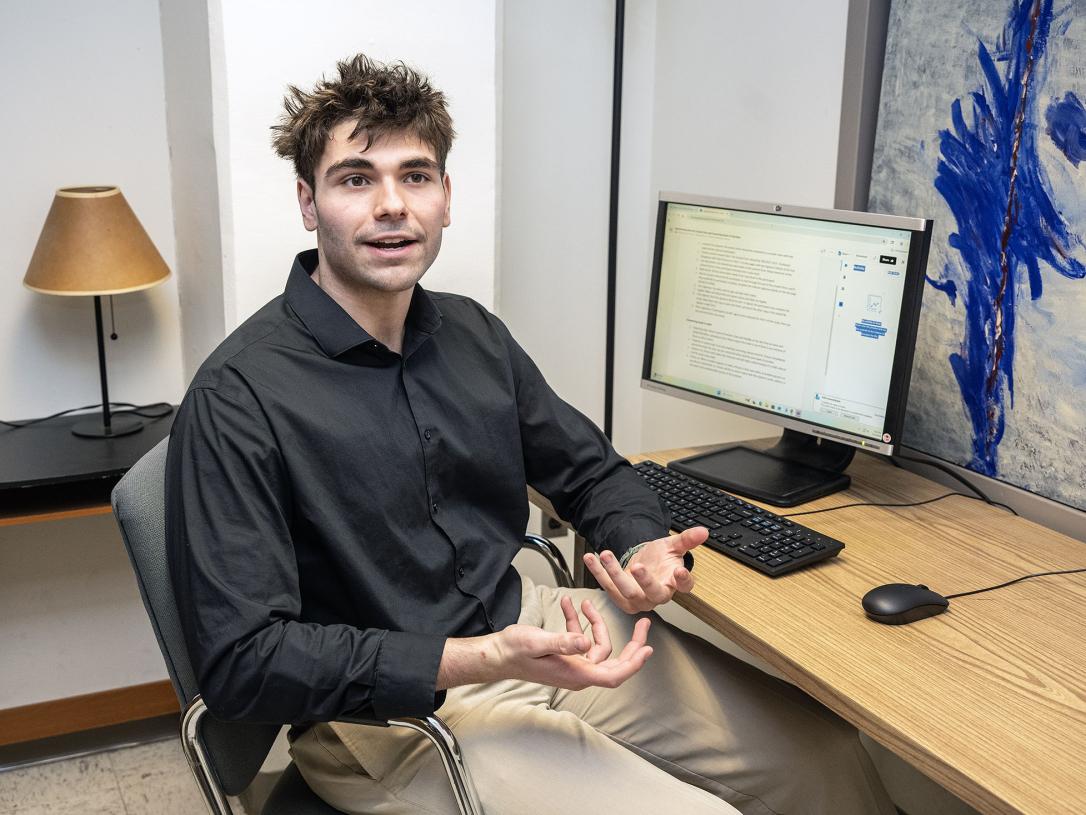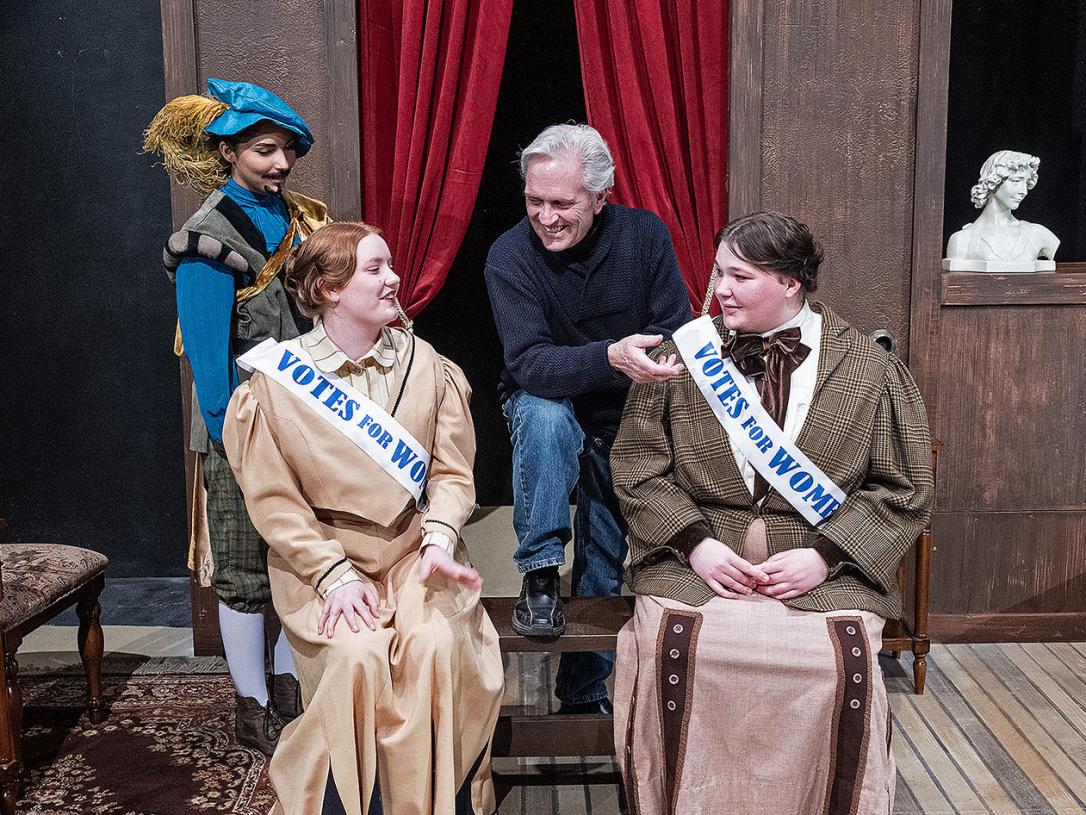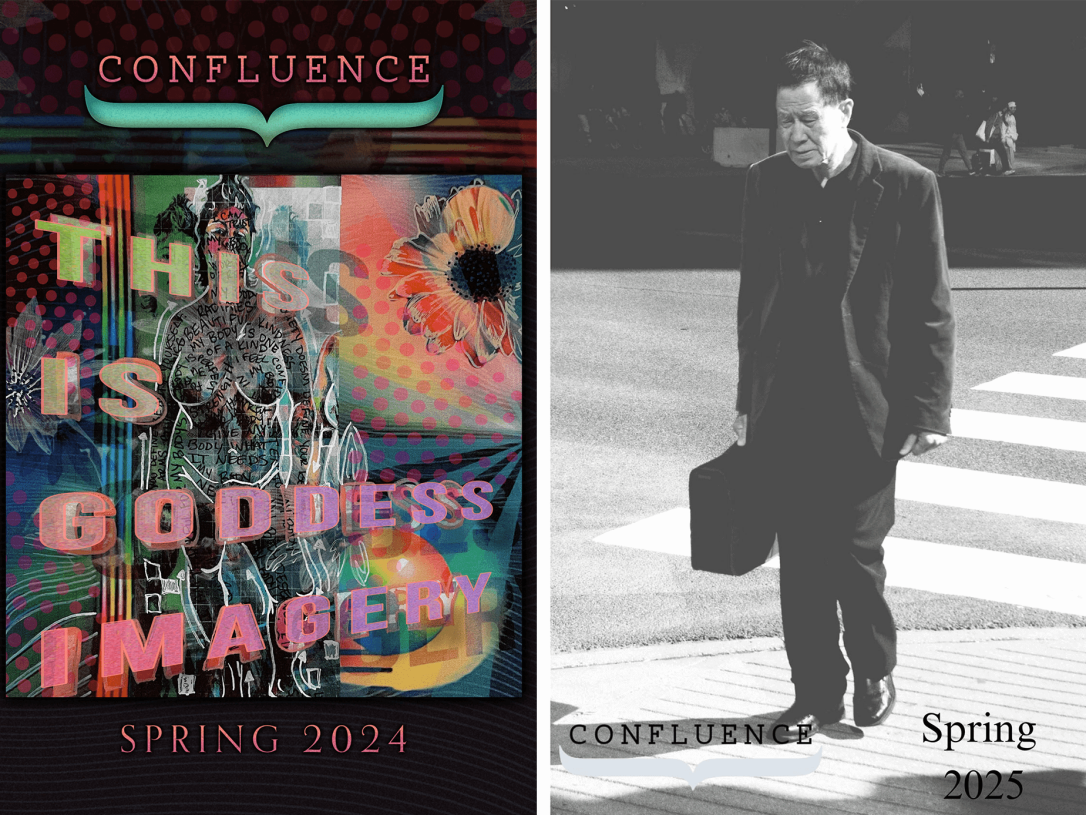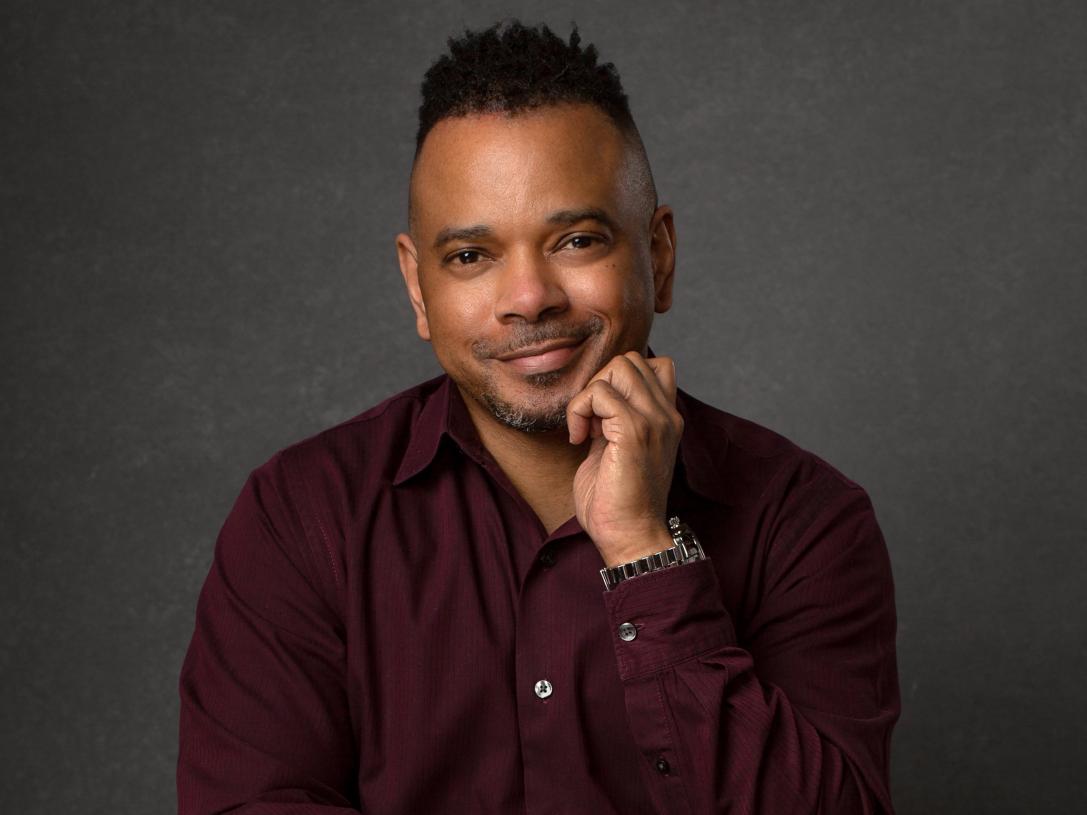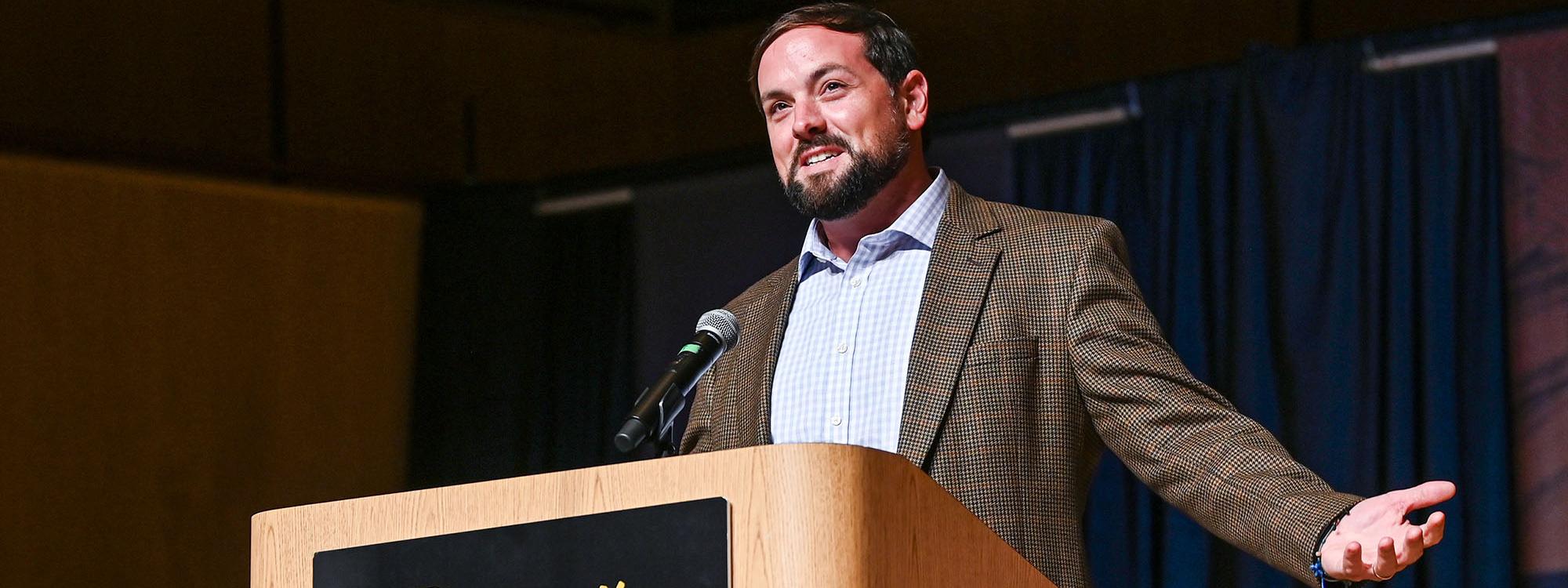
Russert uses Omnibus series platform to describe how he found what he was missing
By Blake Sebring
November 20, 2024
When longtime NBC Meet the Press host Tim Russert died unexpectedly in 2008, his 22-year-old son challenged himself not to cry, even while delivering the eulogy. So many males told him to “stay strong” that he took it to heart, thinking he was fulfilling the expected norm.
But continuing that attitude denied Luke Russert the introspection and expression needed to mourn and heal. At age 30, he left his Emmy Award-winning career as an NBC correspondent. He wanted to travel for what he thought would be six months, but that turned into a three-year journey to 67 countries.
Russert, now 39, shared some of those experiences as part of the Purdue University Fort Wayne Omnibus Speaker Series on Tuesday. His visit to the PFW campus featured an exclusive session with students in the afternoon and a public presentation in Auer Performance Hall called “Grief Journey” a couple hours later. Russert’s evening appearance included an introduction by Kerrie Fineran, chief of campus and community well-being.
“I was by any measure successful, but something was off,” Russert said. “I didn’t feel whole. Who was I beyond this last name that I was given? I didn’t have an answer.”
For almost eight years, Luke Russert felt he needed to live up to and maintain his father’s legacy, but he had never taken the time to consider what his purpose in life should be. That was exacerbated because his father was no longer there to guide him.
“There was something that came up in that journey which was two parallel things,” Russert said. “There was a journey of discovering, but while I was trying to discover my inner self and my inner being, I was doing something else, which was running away from something. I was running away from the grief of losing my father.”
He learned many things on his pilgrimage, including seeing men from other macho cultures cry about their sadness. They embraced their pain as a way to deal with it healthily.
“America has a very complex relationship with grief,” he said. “It’s very taboo in America, and in some other places, it’s way more open, communal, and not so predisposed to total darkness. I think other cultures do it better.”
Part of that has to do with a cultural lack in men’s mental health, Russert said, though admitting a lot of positive strides have been made over the past 10 years. He mentioned athletes, musicians, and politicians who have spoken about their mental health journeys.
“More needs to be done,” Russert said. “What’s really concerning to me now is how much social media and screens create this false sense of community which doesn’t necessarily lend itself to healthy outcomes mentally.
“I think men are falling behind, and the stats and research prove that out. It’s something if we don’t take measure and stock of, it’s going to be incredibly problematic. Young men feel this sense of not belonging, not becoming, and why is that? I think a lot of that is a mental health challenge along with the other things in society.”
Those international experiences taught Russert that he was meant to go on this journey so he could share the lessons he learned, thus giving his grief and emotions a greater purpose. The experiences led to the 2023 book, “Look for Me There: Grieving My Father, Finding Myself.”
Russert finally found his ultimate answers at the Wailing Wall in Jerusalem with the revelation that his father was, and always will be, with him—and that he also would not want his son to suffer and carry this grief forever. It was OK to miss him, but also acceptable to move forward with his life and purpose.
As Russert was writing the book, the woman who is now his wife asked him about having the arrogance to think he knew enough about something someone would care enough to read.
“The answer just popped into my head,” Russert said. “I said, `I don’t care if this book sells two copies and ends up in the bargain bin at an Exxon Gas Station if one kid picks it up and reads it and feels a little less lost, or it helps them process the grief of losing their dad or their mom or a close loved one. Then I’ve done my job.’
“That’s what I was trying to do. I felt very lost, and I had the means and the privilege to try to explore that and travel. Interestingly enough, as I’m going on this very intense external journey—the real journey is actually internal. That was the story.”
